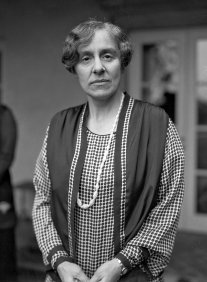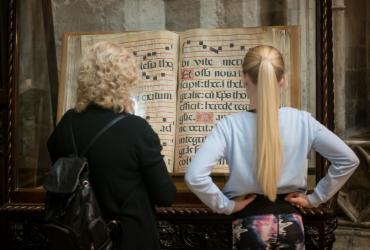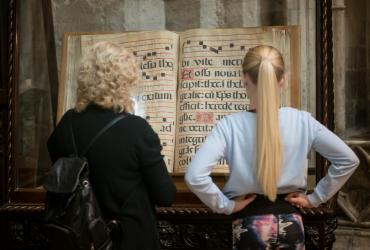 In 2019, a blue plaque was unveiled at Frankby Hall, Wirral in commemoration of Agnes Maude Royden: ‘suffragist, pacifist and first campaigner for the ordination of women lived here’. She died in 1956, nearly forty years before the Church of England allowed women to take on this role in an official sense. But while Royden felt it was wrong of the Church to oppose this move, she neither left the Church nor stood around meekly, waiting to be given permission to speak. In 1917, she boldly accepted an invitation to preach at the Congregationalist, City Temple though she was not allowed to do this in her own Church. And in 1920 she preached in Geneva Cathedral on the enduring foundations of peace. In the same year, she set up the Fellowship Guild and opened the Guildhouse in Eccleston Square, London, carrying on a ministry of teaching and leading worship for many years. As a theologian, she often focussed on matters that were of particular interest to women notably sex and marriage, but also argued passionately against the ‘unChristlike belief that women miss their object in life if they are not wives and mothers’. From an early age she felt that Feminism was a part of Christianity and that it should therefore be part of the wider woman’s movement.
In 2019, a blue plaque was unveiled at Frankby Hall, Wirral in commemoration of Agnes Maude Royden: ‘suffragist, pacifist and first campaigner for the ordination of women lived here’. She died in 1956, nearly forty years before the Church of England allowed women to take on this role in an official sense. But while Royden felt it was wrong of the Church to oppose this move, she neither left the Church nor stood around meekly, waiting to be given permission to speak. In 1917, she boldly accepted an invitation to preach at the Congregationalist, City Temple though she was not allowed to do this in her own Church. And in 1920 she preached in Geneva Cathedral on the enduring foundations of peace. In the same year, she set up the Fellowship Guild and opened the Guildhouse in Eccleston Square, London, carrying on a ministry of teaching and leading worship for many years. As a theologian, she often focussed on matters that were of particular interest to women notably sex and marriage, but also argued passionately against the ‘unChristlike belief that women miss their object in life if they are not wives and mothers’. From an early age she felt that Feminism was a part of Christianity and that it should therefore be part of the wider woman’s movement.
Dr Alison Jasper is Honorary Research Fellow in the Faculty of Arts and Humanities at the University of Stirling, having been Senior Lecturer in Religion and Gender there for many years prior to retirement. She lives in Glasgow and has been particularly involved recently in considering the relationship between gender and liturgy.

